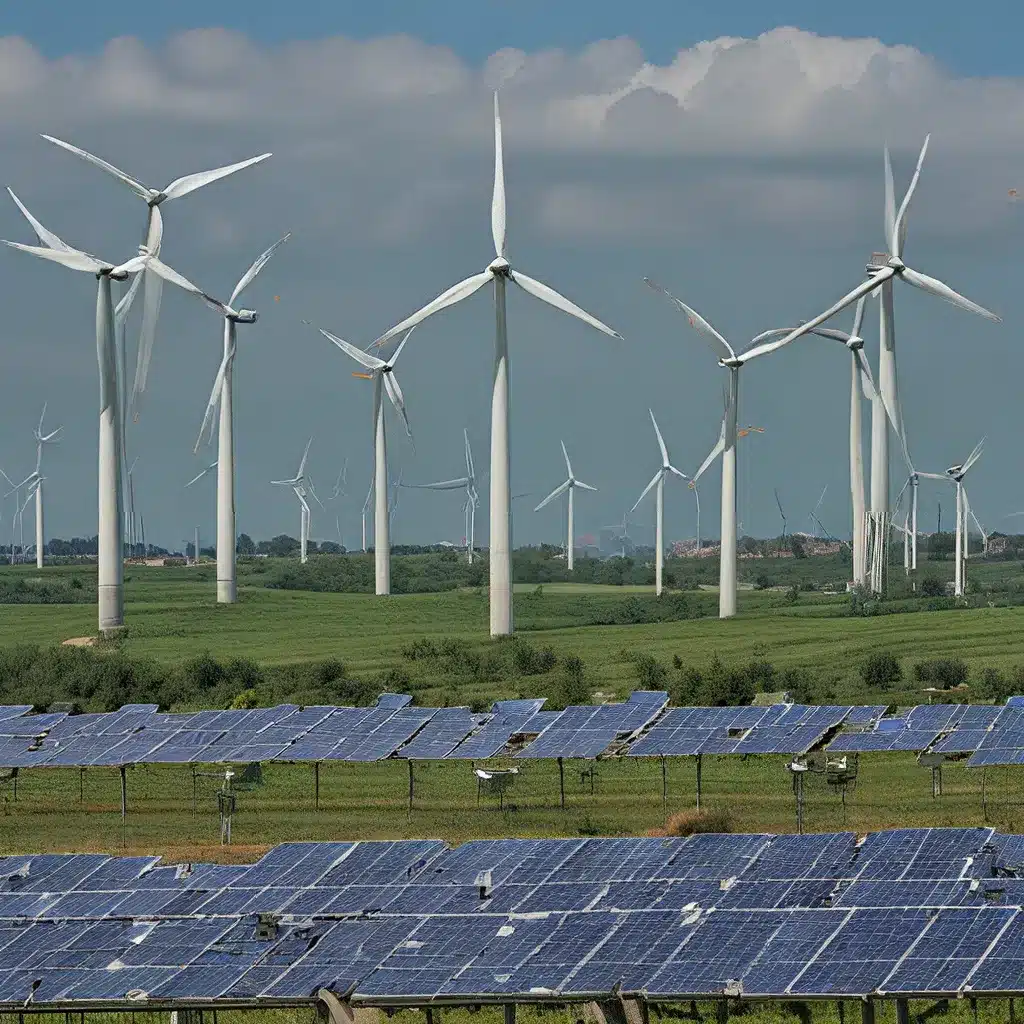
As a renewable energy enthusiast, I’ve often wondered about the interplay between innovative technologies and the regulatory landscape. It’s a fascinating dance, where cutting-edge solutions must navigate the sometimes-murky waters of existing policies and frameworks. And nowhere is this more evident than in the realm of offshore renewable energy.
The seas and oceans around us hold immense potential when it comes to clean, abundant energy. From towering offshore wind turbines to the rhythmic power of waves and tides, the renewable energy of the seas is poised to become a cornerstone of Europe’s energy transition. The EU, with its 5 diverse sea basins, has recognized this massive potential and is spearheading ambitious efforts to harness it.
Navigating the Regulatory Landscape
One of the key challenges in unlocking the full potential of offshore renewable energy lies in the regulatory frameworks that govern its development. As the industry continues to evolve and new technologies emerge, policymakers and regulators must adapt to ensure that innovation can thrive within a supportive environment.
The EU’s strategy on offshore renewable energy, published in 2020, has been a game-changer in this regard. By setting clear targets for installed capacity by 2030 and 2050, the EU has provided a long-term roadmap for the sector. But the real magic lies in the coordinated approach the strategy has fostered.
The EU has recognized that to deliver on its energy and climate goals, it needs to invest massively in renewable energy, including offshore wind and ocean energy. This has led to a flurry of activity, from revising the Trans-European Energy Networks (TEN-E) Regulation to support offshore grids, to establishing regional cooperation frameworks like the North Seas Energy Cooperation and the Baltic Energy Market Interconnection Plan.
Harmonizing Regulations Across Borders
One of the key challenges in the offshore renewable energy sector is the need for cross-border coordination and harmonization. After all, these energy resources don’t respect national boundaries – the winds, waves, and tides flow freely across the seas. This is where the EU’s regional approach has proven invaluable.
By bringing together EU countries within each sea basin, the EU has facilitated the development of non-binding regional goals for offshore renewable deployment. This has allowed for a more cohesive and strategic approach, ensuring that the full potential of each region is harnessed.
But it’s not just about setting targets – the EU has also focused on improving the regulatory framework to support this transition. The revised TEN-E Regulation, for instance, has introduced new infrastructure categories for hybrid offshore grids and radial lines, making it easier to develop the necessary grid infrastructure.
Mobilizing Investment and Innovation
Of course, regulatory frameworks are only one piece of the puzzle. Unlocking the full potential of offshore renewable energy also requires massive investment and a thriving culture of innovation.
The EU has recognized this and has been actively supporting the development of cutting-edge technologies, from floating offshore wind turbines to wave and tidal energy converters. Through initiatives like the Strategic Energy Technology Plan and targeted funding under Horizon Europe, the EU is helping to drive down costs and accelerate the commercialization of these emerging solutions.
But it’s not just about the technology – the supply chain and manufacturing capabilities are also critical. The EU has been a global leader in the wind turbine component industry, and it’s working to strengthen this position even further. The recently launched Clean Energy Industrial Forum is a prime example of how the EU is bringing together industry players to identify and address supply chain challenges.
The Sharing Economy and Offshore Renewables
As I delve deeper into this topic, I can’t help but see the fascinating parallels between the sharing economy and the world of offshore renewable energy. Both are about harnessing the power of collaboration, innovation, and distributed resources to create a more sustainable future.
Just as the sharing economy has disrupted traditional industries, the rise of offshore renewable energy has the potential to transform the way we think about energy production and distribution. It’s about decentralizing power generation, tapping into abundant natural resources, and fostering a collaborative ecosystem of stakeholders.
And the regulatory frameworks that govern this transition are critical. They need to be nimble, responsive, and supportive of innovation – much like the principles that underpin the sharing economy. It’s an exciting time, and I can’t wait to see how the offshore renewable energy sector continues to evolve and push the boundaries of what’s possible.
Towards a Renewable Energy Future
As I reflect on the wealth of information I’ve gathered, I’m struck by the sheer scope and scale of the offshore renewable energy revolution taking place in Europe. From the ambitious targets set by the EU to the innovative technologies being developed, it’s clear that this sector is poised to play a pivotal role in the continent’s clean energy transition.
But it’s not just about the numbers and the targets – it’s about the collaborative spirit that’s driving this transformation. By bringing together EU countries, industry players, and policymakers, the EU is fostering a shared vision for a sustainable energy future.
And as this vision continues to take shape, I can’t help but be optimistic about the role that the sharing economy principles can play. After all, the essence of the sharing economy is about harnessing the power of distributed resources and collaborative innovation – and that’s exactly what the offshore renewable energy sector is all about.
So, as I look to the future, I’m filled with a sense of excitement and anticipation. The regulatory frameworks may still be a work in progress, but the potential is undeniable. And with the right mix of innovation, investment, and collaborative policymaking, I believe that the offshore renewable energy sector can truly transform the way we power our world.

